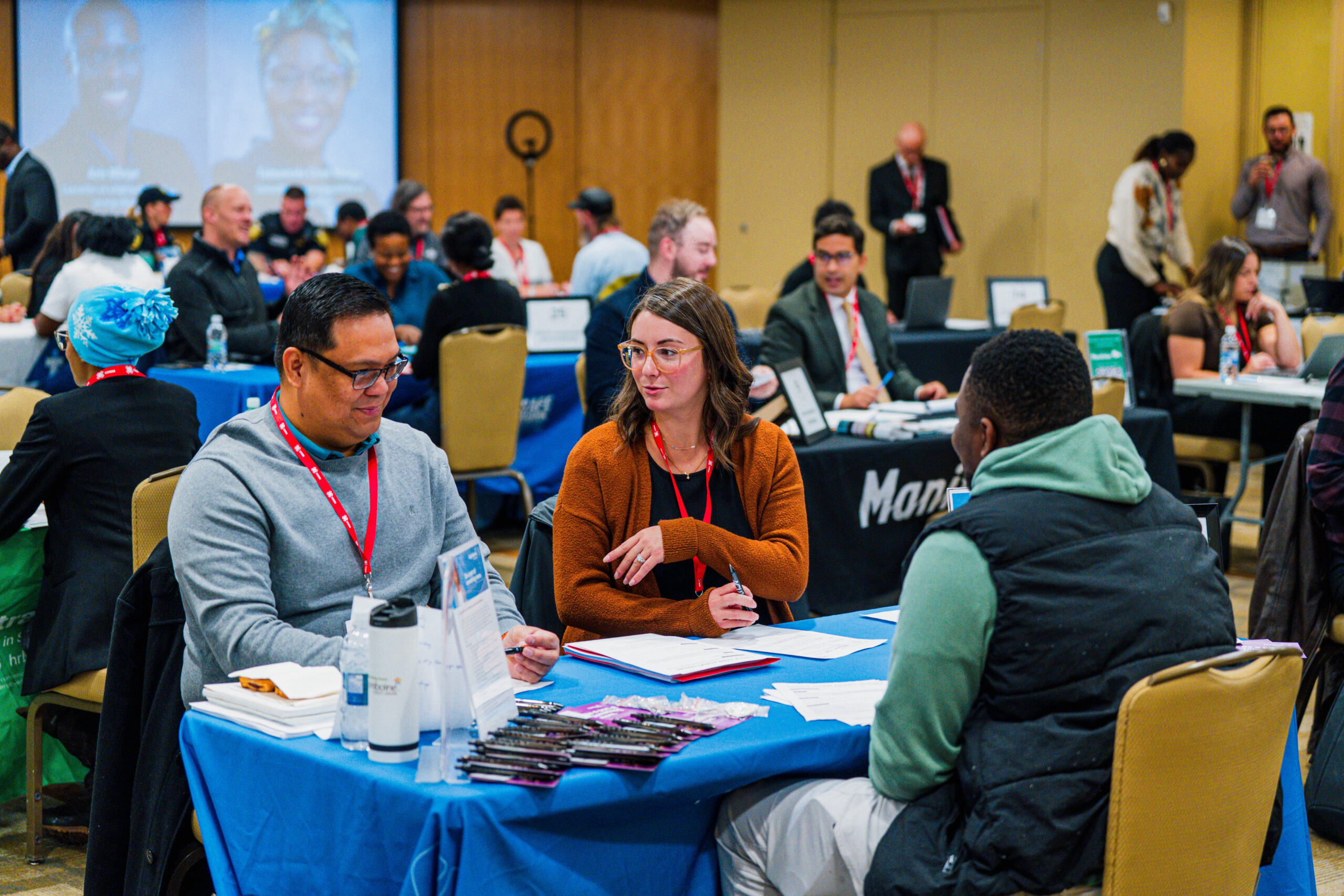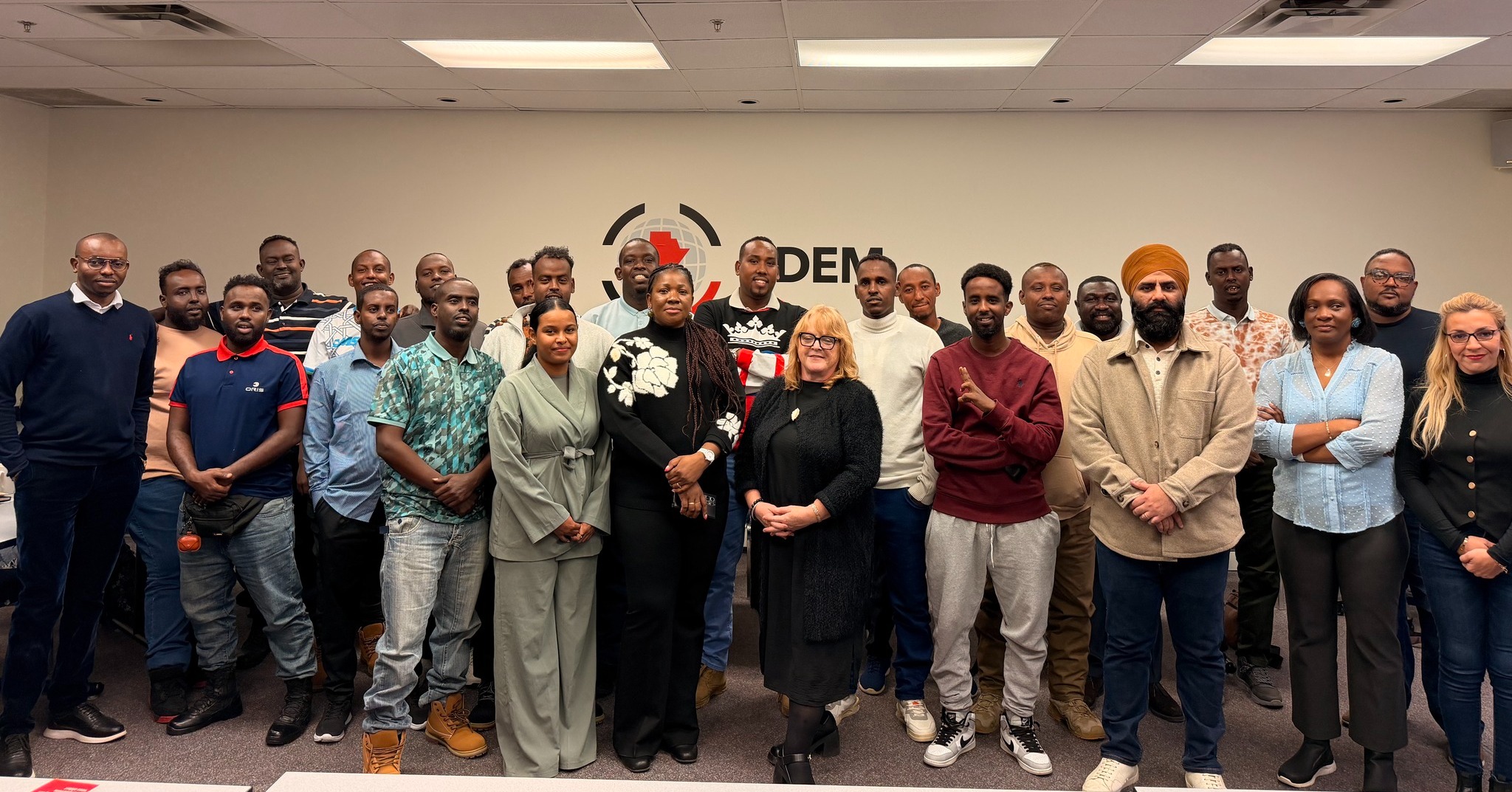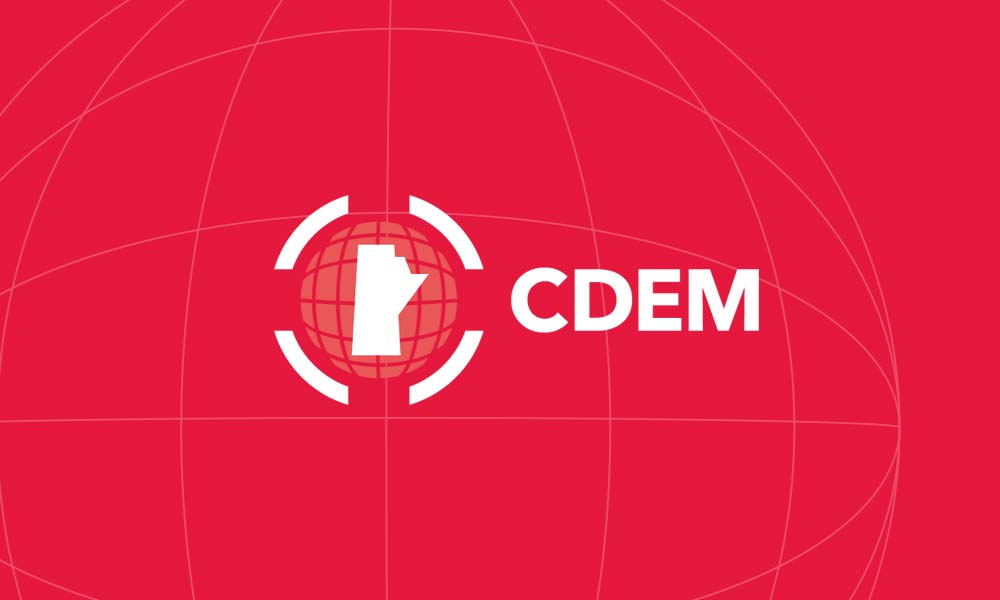Francophone Community Immigration Pilot Program (FCIP)
The Village of St-Pierre-Jolys is proud to be one of the communities selected across Canada to participate in the Francophone Community Immigration Pilot Program (FCIP). This pilot program offers a pathway to permanent residency for skilled workers who want to work and live in one of the selected rural and small communities.
The St-Pierre-Jolys Pilot is carried out in collaboration with the AMBM and CDEM.
The goal of the FCIP is to help employers fill labour shortages. This is an employer-driven program, which means a job offer is required before you can apply. Eligibility requirements and the application process are outlined below for both Employers and Candidates.
For any questions or inquiries about the program:
Carlos Codjo
ppicf@cdem.com
For additional information regarding the program:
Immigration, Refugees and Citizenship Canada (IRCC)
Priority Sectors and Occupations
Only employers who do business in at least one priority occupation and sector listed below will be eligible to become a designated employer and participate in the St-Pierre-Jolys FCIP.
Priority Sectors
- Health
- Education, Law and Social, Community and Government Services
- Sales and Service
- Trades, Transport, Equipment Operators and Related Occupations
- Business, Finance and Administration
Priority Occupations
- 31301 – Registered nurses and registered psychiatric nurses
- 31302 – Nurse practitioners
- 31102 – General practitioners and family physicians
- 31103 – Veterinarians
- 31110 – Dentists
- 33109 – Other assisting occupations in support of health services
- 65310 – Home support workers, housekeepers and related occupations – light housekeeping and cleaning work
- 41220 – Secondary school teachers
- 41221 – Elementary school and kindergarten teachers
- 42202 – Early childhood educators and assistants
- 43100 – Elementary and secondary school teacher assistants
- 65201 – Food counter attendants, kitchen helpers and related support occupations
- 75110 – Trades helpers and labourers
- 14100 – General office support workers
- 72300 – Plumbers
- 72310 – Carpenters
- 72200 – Electricians (except industrial and power system)
- 72410 – Automotive service technicians, truck and bus mechanics and mechanical repairers
- 72106 – Welders and related machine operators
- 11102 – Financial advisors
- 64400 – Customer service representatives – financial institutions
- 64301 – Bartenders
- 63100 – Insurance agents and brokers
- 63200 – Cooks
- 63202 – Bakers
Designated Employers List
Education, Law and Social, Community and Government Services
- Garderie Les Petites Grenouilles Inc (not hiring for the moment)
Sales and Service
- Boulangerie St Pierre Bakery
- St Pierre Subway
- St Pierre Bigway (not hiring for the moment)
*Please do not contact employers that are listed as not recruiting.
Employers
Step 1: Employer Requirements
In order to participate in the St-Pierre-Jolys FCIP, an employer must be designated.
To be designated, an employer must:
- Be an active, genuine business that has been operating continuously for at least 2 years within the community boundaries;
- Do business in at least one priority occupation identified above;
- Do at least 75% of business work inside the community boundaries;
- Complete the free onboarding training;
- Complete the free intercultural competency training;
- Agree to support the settlement of each applicant and any accompanying family member, including by facilitating access to the settlement and social service support;
- Agree to be listed publicly on the St-Pierre-Jolys website;
- Not be in violation of the employer compliance regime under the Immigration and Refugee Protection Act (IRPA) or Immigration and Refugee Protection Regulations (IRPR), and be in good standing and comply with the Ontario Employment Standards Act, 2000 or the Occupational Health and Safety Act;
- Have no outstanding penalties or charges with the municipality and that both property taxes and water and sewer accounts are current with no past due balances; and
- Not have directly or indirectly misrepresented or withheld any fact relating to a relevant matter that could influence the decision of allowing them to participate in the program.
The following businesses/organizations are not eligible to participate in the St-Pierre-Jolys FCIP:
- Property management companies and real estate companies;
- A consulate;
- A staffing or employment agency;
- A business owned by an authorized immigration representative (including law firms);
- A business that an applicant (or their spouse or common-law partner) owns or controls;
- An employer referred to in paragraphs 200(3)(g.1) and (h) of the Immigration and Refugee Protection Regulations.
Step 2: Apply for designation
There is no cost to becoming a designated employer. You can apply for designation in advance of hiring a foreign national or when you find someone you wish to hire. Designation applications are accepted on an ongoing basis.
Contact us by email at ppicf@cdem.com
Discuss:
- Your business/organization’s eligibility for the Pilots;
- Your prospective job offer; and/or
- Your candidate’s eligibility (if applicable);
- Receive the links to the mandatory online training; and
- Obtain the Employer Designation Application Form.
Once you have completed the online training and downloaded the Certificates of Completion, submit them along with your completed Designation for Application Form to fcip@cdem.com
NOTE: Employers are only required to be designated once in order to participate in the Pilot. However, an employer’s designation status may be revoked for any of the following reasons:
- Pilot priority sectors and/or occupations change, and the employer no longer falls within priorities;
- The designated employer voluntarily requests withdrawal from the Pilot;
- The CDEM becomes aware that the employer no longer meets the employer designation criteria; or
- Any of the reasons set out in section (4) of the Ministerial Instructions with respect to the Francophone Community Immigration Class.
Step 3: Hire a candidate
Once you’re designated, you can offer jobs to eligible candidates.
Click here to ensure your job offer meets the requirements of the Pilots.
Click the link below to ensure your candidate meets the candidate requirements:
If the job and candidate meet the requirements of the Pilot, provide the candidate with a completed Offer of Employer Form:
Encourage your candidate to get their documents ready to submit with their recommendation application.
NOTE: If a candidate is not currently working with you, the employer will have to demonstrate that they have made efforts to recruit a Canadian citizen or a permanent resident prior to providing the offer of employment to the candidate.
Step 4: Apply for recommendation
When you are ready, contact us at ppicf@cdem.com to obtain a Recommendation Application Form.
The Recommendation Application Form confirms:
- That you haven’t been able to fill the job with someone locally;
- That the job offer meets the pilot requirements;
- That the candidate meets all of the requirements for the pilot;
- That you commit to connecting your candidate with immigrant settlement services in your community.
Once you complete the Recommendation Application Form and have gathered all the required documents from the candidate, submit your application for recommendation through our online portal.
Link to a checklist of all documents required for the application to be considered complete.
Step 5: How applications are processed
If your recommendation application is approved, your candidate will receive a recommendation certificate that allows them to apply to the IRCC for permanent residence.
Continue to support your candidate by implementing the commitments to settlement supports that you outlined on the Recommendation Application Form to help the candidate integrate into your business/organization and to feel welcome in the community.
NOTE: Receiving a community recommendation certificate from CDEM does not guarantee that your candidate will receive permanent residence. It is up to the IRCC Processing Officer’s discretion when they are reviewing the application.
Step 6: Support your candidate
If your candidate requires a temporary work permit while their permanent residence application is being processed at the IRCC, click here to learn about the steps involved.
Step 7: Optional : Work permit
If your candidate requires a temporary work permit while their permanent residence application is being processed at the IRCC, click here to learn about the steps involved.
Candidates
Step 1: Who can apply
Make sure you meet the IRCC Federal Eligibility Requirements. Click the link below to ensure meet the applicant requirements:
Step 2: Get a job offer
Applicants must secure full-time permanent employment in the region with a designated employer in one of the priority sectors and occupations listed above.
View the list of designated employers above
If you are successful in securing a job offer with a designated employer and they agree to support your application, they will provide you with an Offer of Employment Form.
Step 3: Get a community recommendation
Once you have a valid job offer from a designated employer, the employer will submit an application for community recommendation. Ensure that you have provided them with all the necessary documents required for a complete application.
Step 4: How applications are processed
The St-Pierre-Jolys FCIP ranks applications in a pool using a points-based system. Complete applications meeting the eligibility requirements / minimum score of 50 points required will be placed into the Candidate Pool.
Step 5: Apply for permanent residence
If your employer’s recommendation application is approved, you will receive a recommendation certificate that allows you to apply to the IRCC for permanent residence. The recommendation certificate is valid for a period of six (6) months.
Click the link below for instructions on how to apply for permanent residence, including a document checklist and instructions for filling out forms:
NOTE: Receiving a community recommendation certificate from CDEM does not guarantee that your candidate will receive permanent residence. It is up to the IRCC Processing Officer’s discretion when they are reviewing the application.
Step 6: Settle in St-Pierre-Jolys
Once you’ve applied for and/or received your permanent residence from the IRCC, you will be asked to communicate with CDEM and your employer to share details and timelines about your relocation to the region, if applicable.
Your employer will support you by connecting you to settlement services, helping you integrate into the workplace, and welcoming you to the community.
Step 7: Optional: Work permit
If you require a temporary work permit while your permanent residence application is being processed at the IRCC, click here to learn about the steps involved.





